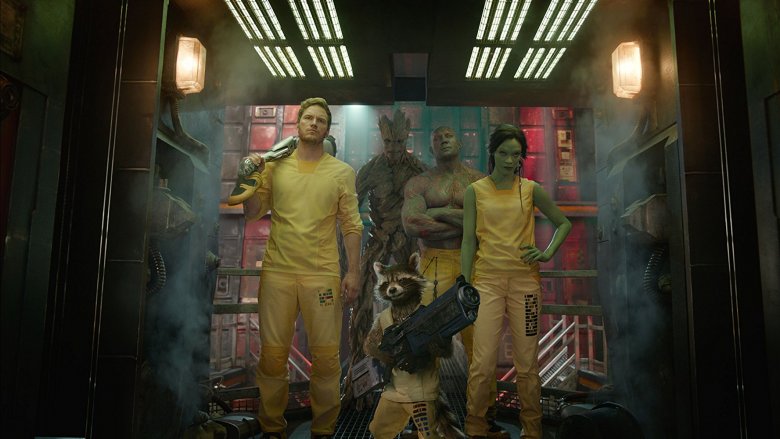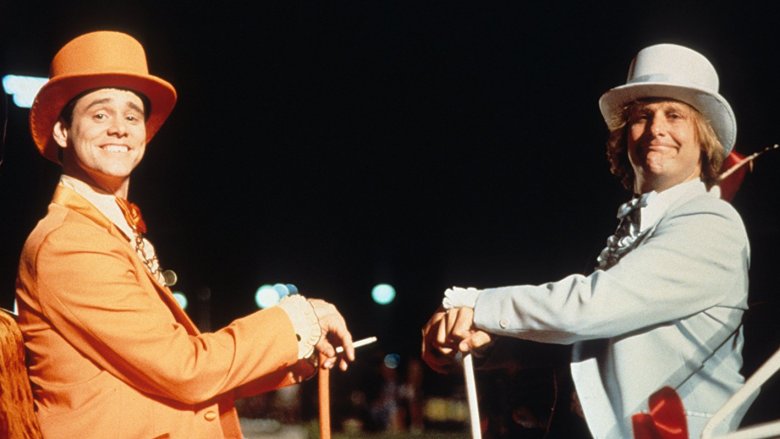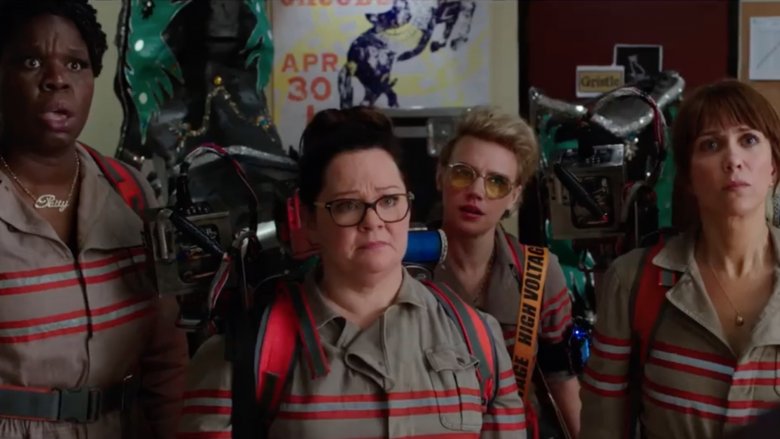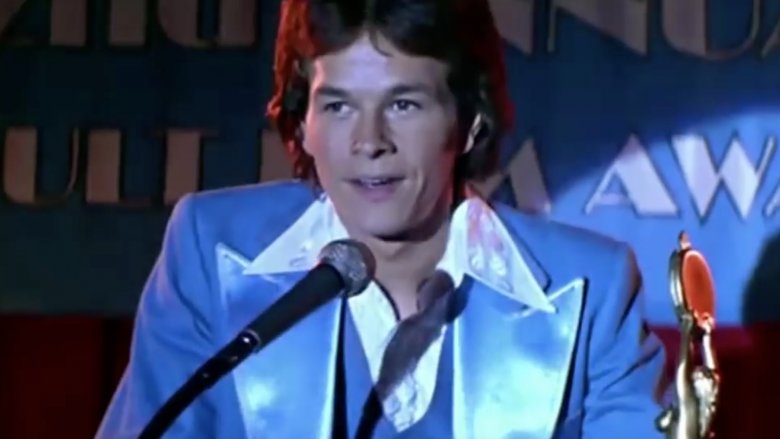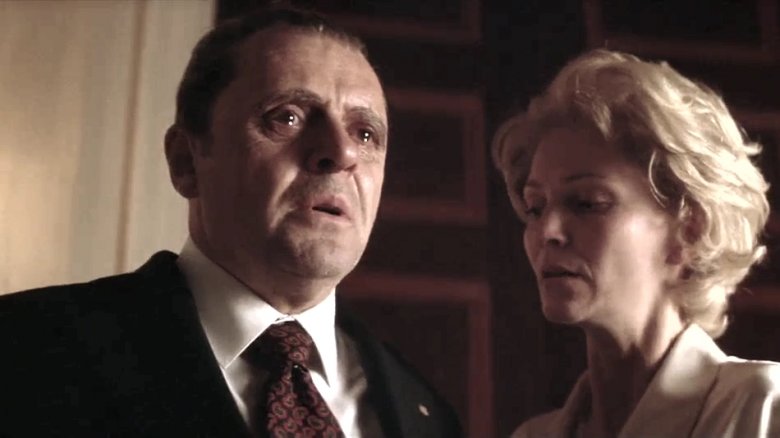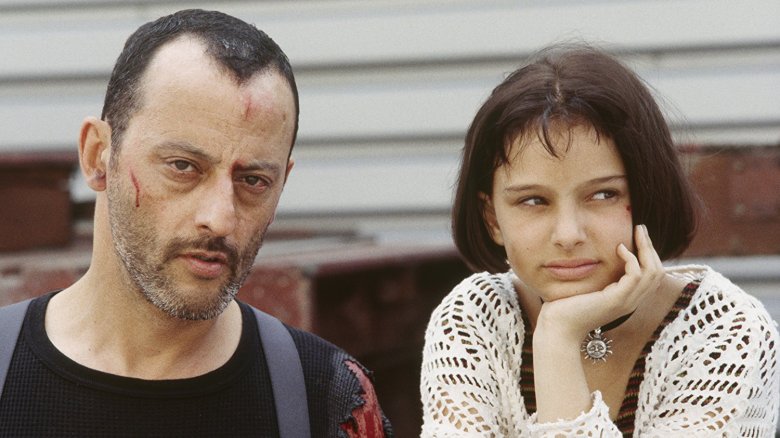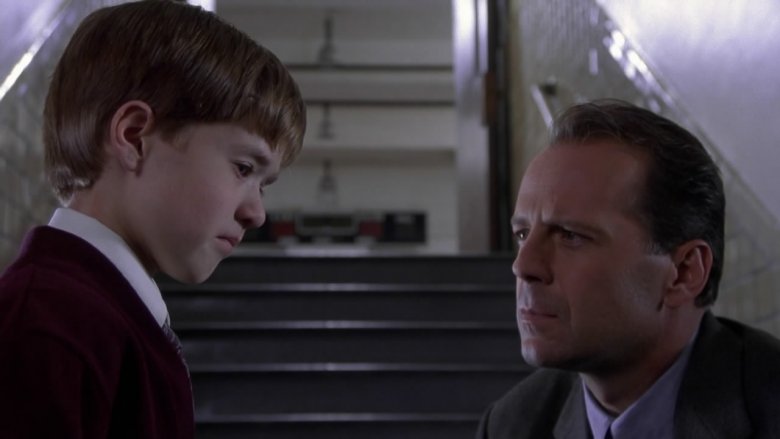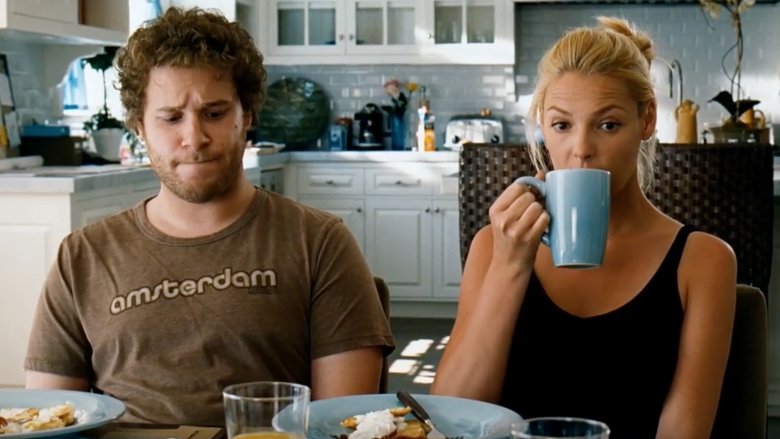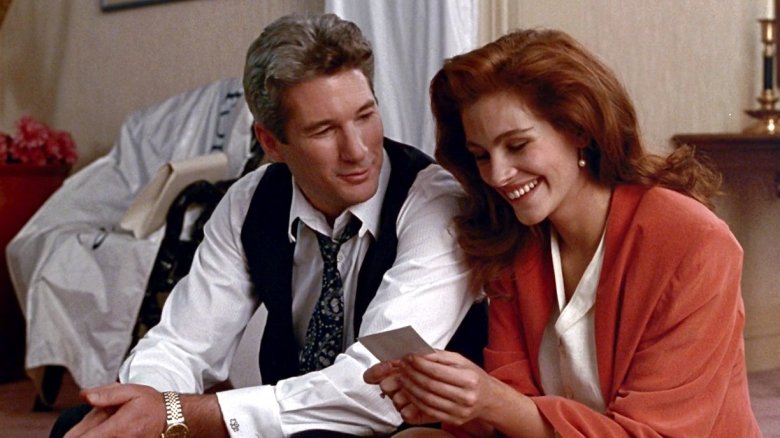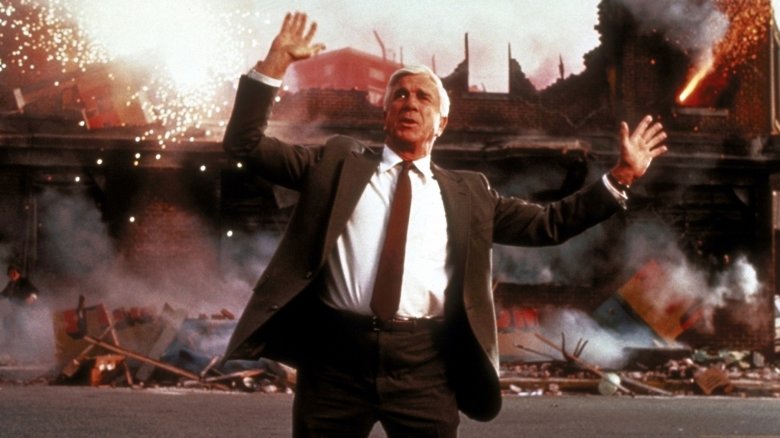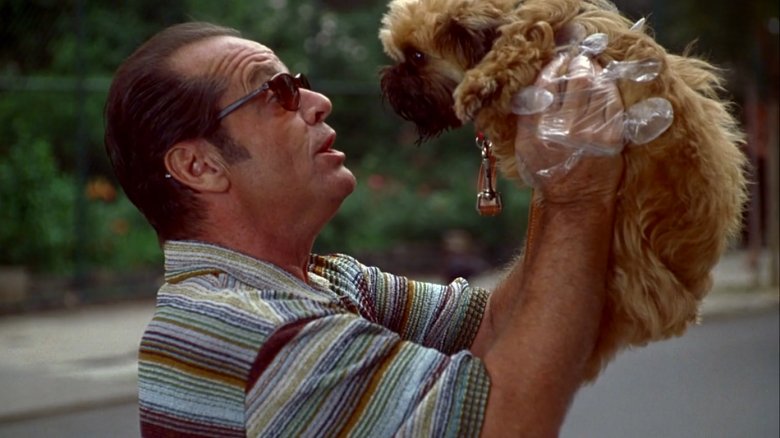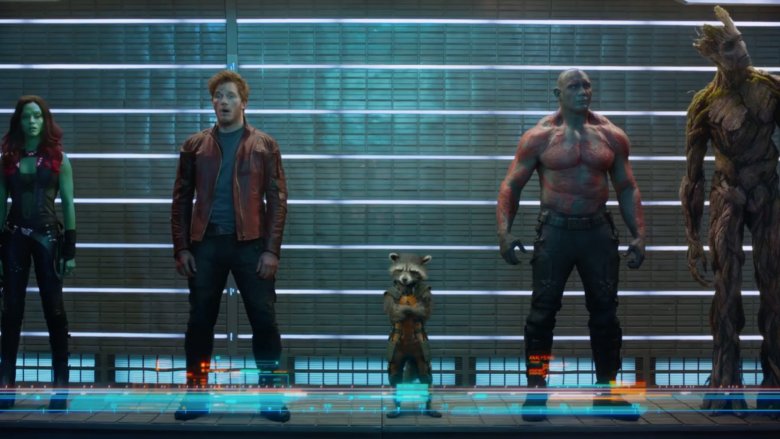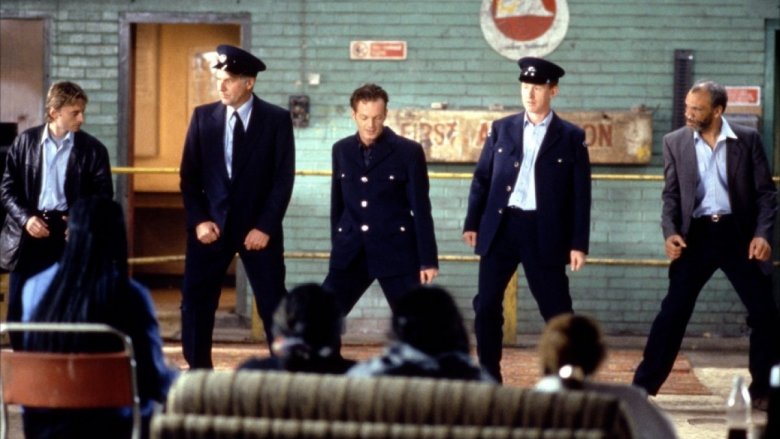Movie Titles That Were Completely Different In China
With a population north of one billion, China remains one of the most sought after international markets in the world. That's particularly true of a film industry that can see their profits doubled (or better) on a film by a good showing in Asia's biggest market. Still, political and cultural differences can hamper a film's success there. So much so that even the biggest Hollywood releases are typically re-branded prior to release in China. That process often starts by translating a movie title or simply giving a film a new one altogether. Here are a few titles that give new meaning to the term "lost in translation."
Dumb and Dumber —> Two Stupid Stupid People
Lloyd Christmas is a dimwitted, self-serving narcissist with a wicked sharp bowl cut. Harry Dunne is a kind-hearted but clueless goofball who drives a van shaped like a dog. Together, they are Dumb and Dumber, though they'd likely argue about which is the former and which is the latter. Either way, their farcical road trip ended up being one of the bigger box office hits of 1994.
While we're confident the film's outrageous sight gags and physical comedy worked for all eyes and ears, we can only imagine that some of the film's less obvious humor was lost in translation overseas. When Dumb and Dumber finally made its premiere in China, it screened under the brutally honest and equally hilarious title of Two Stupid Stupid People. If you've seen the film, you know it's virtually impossible to argue with that assessment.
Ghostbusters (2016) —> Super Power Dare Die Team
Sometimes a title simply doesn't translate cleanly into another language, just ask dear old friend Jimmy James from Newsradio if you don't believe us. And the 2016 all female reboot of Ghostbusters had a similar problem, suffering from the trouble of finding a Cantonese translation of the film's title.
Though the film's Chinese title — Super Power Dare Die Team — might hit on a few of the more practical points of the Ghostbusters' action-packed story, that label feels more like an interpretation of the film's valiant narrative than a precise translation of Ghostbusters. At best, it bolsters the heroic deeds of the principal characters. At worst, it falsely alludes to super-powers they don't actually have. It also makes it a lot less fun to answer the question "Who you gonna call?"
Boogie Nights —> His Powerful Device Makes Him Famous
The best movie titles have a way of alluding to the nature of a film without giving away anything specific about the film's plot or its characters. By that standard, Paul Thomas Anderson hit the nail on the head when he named 1997's Boogie Nights. That title succinctly alludes to a different time and a different place, but it also paints a distinct picture in the mind about a certain lifestyle full of highs, lows, pleasures, and pains.
If only translators had taken a similar route to the Chinese title. Rather, their title His Powerful Device Makes Him Famous hits the nail on the head by simply adapting a central plot point as its name. Not only does that title miss the mark in building a sense of playful intrigue around the film, it leaves far too little to the imagination and ultimately undercuts dramatic shock of Boogie Nights' final moments.
Nixon —> The Big Liar
By the time Oliver Stone got around to directing his epic 1995 biopic Nixon, he'd already developed a reputation for playing so loose with the facts it would've impressed even the former president himself. It should come as no surprise that, although Nixon is an engrossing and infuriating film to watch, its behind-the-scenes drama is also regarded as a bit more fiction than fact.
As you might expect, Nixon doesn't exactly paint a pretty picture of America's 37th President, and history is certainly on Stone's side when it comes to the man's deeds. Still, Nixon's 1972 diplomatic visit to China is regarded as one of the more immediately successful political overtures of the 20th Century, and its effects are still being felt in today's society. So even if the then prez was rapidly becoming known as "the big liar" while the Watergate scandal unfolded back home, we're a bit surprised at the use of The Big Liar for the film's Chinese release, if only because it ruined the title for biopics about any U.S. president who comes after. Not that we have anyone specific in mind.
Léon: The Professional —> This Hitman is Not as Cold as He Thought
Léon doesn't ask questions, doesn't feel, and doesn't make mistakes; the only thing he loves is a houseplant, and the only person he answers to is the mobster who employs him. In short, he's the perfect hit man, a true professional, at least until a crisis of conscious leads him to take vengeful 12-year-old Mathilda under his wing as a murderess in training.
Welcome to the wicked world of Luc Besson's Léon: The Professional. Yes, that world is full of big guns, savage action, and violent people doing bad things to each other. Even if Léon does carry an odd (occasionally uncomfortable) sense or romanticism, we can't help but feel like the Chinese title of the Besson classic — This Hitman is Not as Cold as He Thought — sounds more like the tagline for a romantic comedy than a hard-nosed crime thriller
The Sixth Sense —> He's A Ghost!
When M. Night Shyamalan brought The Sixth Sense to theaters in the summer of 1999, he brought it under a grand shroud of secrecy. Turns out, there was good reason for that — the film's dramatic maneuvering hinged entirely on a whopper of a third act twist. One that left the jaws of most viewers firmly planted on the multiplex floor while they simultaneously kicked themselves for not figuring it out.
Though the film's big twist has been common knowledge for almost two decades now, The Sixth Sense's many adorers still look back fondly at the moment it finally revealed itself to them. Sadly, many Chinese viewers did not have the same visceral experience when The Sixth Sense hit their local theaters under the super spoilery name He's A Ghost! Sure, that title doesn't spoil the entirety of the film (i.e., it doesn't state explicitly who the ghost is), but it still feels like it should come with a major spoiler warning.
Anchorman: The Legend of Ron Burgundy—> Ace Announcer
It's hard to believe that the venerable Ron Burgundy made his big-screen debut almost 15 years ago. A lot has been said about Anchorman: The Legend of Ron Burgundy in the years since its release. However you feel about the anarchic Will Ferrell comedy, you cannot overlook the fact that its plethora of stodgy one-liners, its chauvinistically pro-feminist message, and that unforgettable, back alley brawl have all become the stuff of, well, legend.
It's probably no surprise though that, as well as the film did in America, its boisterous American attitude didn't connect as clearly with foreign audiences. That may have something to do with the film's title and how that title translated overseas. While we're certain that Mr. Burgundy would've approved of Anchorman's Chinese title, Ace Announcer, we can't help but wonder if that title failed to entice its desired audience. Stay classy though, China!
Knocked Up —> One Night, Big Belly
Sometimes a title so succinctly sums up what a movie is about that it's almost blasphemous to consider changing it. Judd Apatow's Knocked Up is one of those films; the title itself hits on the film's central narrative while also capturing the comedic underbelly of that narrative. It helps as well that Knocked Up sort of rolls off the tongue in a way that makes it almost fun to say at the box office.
On the strength of Apatow's comedic and dramatic vision and an iconic turn from a then relatively unknown Seth Rogen, Knocked Up went on to be one of 2007's biggest hits, pulling in north of $200 million worldwide. Still, the film was largely ignored when it was released in China, and we can't help but wonder if some of Knocked Up's comic edge wasn't lost in translation, particularly since the film's Chinese title — One Night, Big Belly — sounds more like a cautionary tale than a raucous sex comedy.
Pretty Woman —> I Will Marry a Prostitute to Save Money
Almost 30 years after its release, Pretty Woman is still regarded as one of the greatest romantic comedies ever made. If you've ever seen the Richard Gere/Julia Roberts romcom, then you know it's still very hard to argue that logic. The tale of an adrift businessman and a hooker with a heart of gold falling in love in Los Angeles remains a high mark for both the genre and the actors themselves.
Seems that China may have taken issue with the slightly loose sense of morality at the heart of the film, however. When Pretty Woman arrived in Chinese theaters, it arrived under the lengthy name of I Will Marry a Prostitute to Save Money. That title takes any semblance of romance (and comedy) out of the equation and turns the film's iconic love story into a straight-up business transaction. We can only wonder if Chinese audiences actually knew what they were in for when they bought tickets to this film.
The Naked Gun —> The Gun Died Laughing
From time to time, a foreign title comes along that actually works better than the original. Not that there's anything wrong with the title the Zucker brothers chose for their 1988 crime comedy, The Naked Gun: From the Files of Police Squad! It suits the tale of Police Squad's egregiously incompetent Frank Drebin to a T.
The film's original title evokes The Naked Gun's slapsticky, gum-shoey, Dashiell Hammett-tinged edges with a quippy, yet stoic simplicity. It's the sort of clever, playful titling so many comedies aspire to. However, the Chinese title of the film — The Gun Died Laughing — fits those edges so much better. So much better, in fact, that we sort of wish that the Zuckers could go back in time and release the film — and its subsequent sequels — under that name instead.
As Good As It Gets —> Mr. Cat Poop
Nominated for seven Academy Awards (and boasting wins for stars Jack Nicholson and Helen Hunt), As Good As It Gets was the sort of multicultural, dramatic romcom that Hollywood dreams about. The film's "something for everyone" appeal didn't exactly hurt its U.S. box office appeal either. Still, the tale of a cantankerous New Yorker overcoming a debilitating case of O.C.D. to find love and redemption didn't exactly scream blockbuster upon release.
Surprisingly, the film made more money abroad than it did at home, though we can't help but wonder whether Chinese audiences were surprised when they sat down to watch the film under the translated title of Mr. Cat Poop. Don't get us wrong, Melvin's life essentially is cat poop when As Good As It Gets opens and even if the name Melvin also sounds quite similar to the Cantonese word for cat poop, we don't actually remember there being a cat anywhere in this film. So you see why we might be a little confused by that alt title.
Guardians of the Galaxy —> Interplanetary Unusual Attacking Team
It's easy to forget now, but, save for a few die-hard Marvel fans, not many people actually knew who the hell the Guardians of the Galaxy were a few years back. That changed almost overnight when James Gunn's pitch-perfect 2014 adaptation danced its way into theaters. Packed with big names, bigger action, serious laughs, and a surprisingly satisfying dramatic core, Gunn's film would go on to become a global phenomenon and make household names of the titular Guardians.
Of course, those names (and the name of the film itself) were often a little different for that global audience. When the film hit Chinese theaters, it hit with the hyper literal title of Interplanetary Unusual Attacking Team. While that title certainly captures the spirit of the film's setting, its lust for action, and its diverse characters, we're actually quite curious, do you think when they refer to themselves by name in the film they use Guardians or their alternative name?
The Full Monty —> Six Naked Pigs
As we've already mentioned, translating a title can be a tricky bit of business. Peter Catteneo's Oscar nominated dramedy The Full Monty is a particularly trick case because it's a very British film with a very British title. In fact, when The Full Monty found its way to American shores, most U.S. audiences didn't know what "full monty" actually meant. Imagine their surprise when they got more than an eyeful of the film's six central characters.
In case you've forgotten, those characters are set up as unemployed steel workers who turn to male stripping to make ends meat, er, meet. As such, they're also the epitome of the "common man," not the buff bods that usually flash skin in a feature film. Seems the folks who re-titled The Full Monty for China didn't care for the nobility of the film's characters, releasing the film under the title Six Naked Pigs. We're certainly not going to sit here and try to convince you that the stars of The Full Monty are sex symbols with six packs to match, but that title still seems pretty harsh.
Solo: A Star Wars Story —> Ranger Solo
Of course, sometimes a name change on a film is purely a practical matter. If you've been keeping track of global box office numbers over the past few months, then you know that China is one of the few markets that was less than fruitful for Star Wars: The Last Jedi. The film shockingly opened in second place in China, which basically means it was a huge flop there. The central reason for that flop is simple, the Star Wars franchise just isn't all that popular in China.
For that reason, the Star Wars marketing team are taking dramatic steps to distance the franchise's "extended universe" films from the rest of the galaxy far, far away that inspired them. The new marketing will begin with the upcoming Han Solo origin flick, Solo: A Star Wars Story. When that film finds its way to Chinese theaters, all that Star Wars stuff will not be tagging along with it. Rather, the film will screen under the name Ranger Solo, which is certain to lead die-hard fans to ask the question, "What exactly is Han Solo a Ranger of?" That question will certainly fall on deaf ears if Solo becomes a box office hit in China, though we wouldn't dream of laying out the odds of success for our beloved Mr. Solo.
